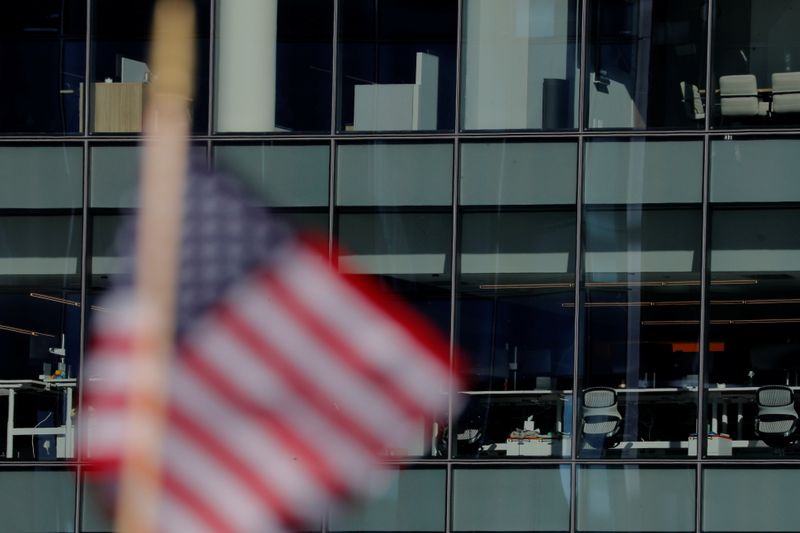(Reuters) - The number of Americans filing new claims for jobless benefits drifted lower last week, signaling the U.S. labor market is making little fresh headway in getting millions of people back on the job after being out of work due to COVID-19 disruptions.
Initial claims for state unemployment benefits totaled a seasonally adjusted 840,000 for the week ended Oct. 3, compared with an upwardly revised 849,000 in the prior week, the Labor Department said on Thursday. Economists polled by Reuters had forecast 820,000 applications in the latest week.
Claims have stalled at historically high levels after dropping below 1 million in August as the government changed the way it strips seasonal fluctuations from the data. They are above their 665,000 peak during the 2007-09 Great Recession, though filings have dropped from a record 6.867 million at the end of March.
Those continuing to draw benefits after their initial claim for assistance fell to 10.976 million in the week ended Sept. 26 from 11.979 million the week before. Economists polled by Reuters had forecast continuing claims at 11.4 million.
Labor market gains from the reopening of businesses are fading. Last Friday's employment report for September - the last one before the Nov. 3 presidential election - showed the fewest number of jobs created since the labor market began recovering in May. Roughly half of the 22.2 million people who lost their jobs in the early days of the pandemic remain out of work.
Economists are predicting a further slowdown in hiring through the rest of 2020 and into 2021, especially without another federal pandemic assistance package.
Prospects for that look increasingly bleak after President Donald Trump abruptly called off talks with congressional Democrats this week shortly after being released from Walter Reed Medical Center, where he had been treated for COVID-19. While he later backtracked somewhat, top White House officials on Wednesday downplayed prospects for more relief before Election Day.

Meanwhile, progress containing the coronavirus remains elusive, with cases rising across much of the country and a surge expected in the fall, which could lead to the reimposition of restrictions on businesses in the hard-hit services sector.